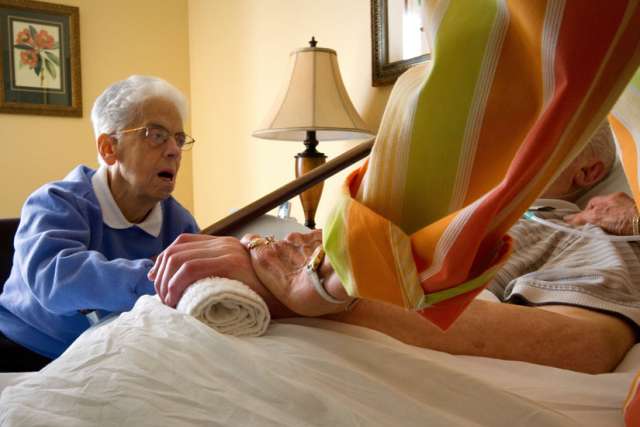I recognize that the government’s haste is due in large part to the strict timeline laid down by the Supreme Court for Parliament to respond to the Carter decision. But when you deal with legislation that is of once-in-a-generation magnitude, haste makes for big mistakes.
I believe that finding a way to engage Canadians in the process could have made a huge difference in crafting this legislation. What the government would have learned is that they need to balance the ability to access palliative care with defining the parameters of assisted dying, as required by the Supreme Court.
In the many town halls where I have engaged with people on palliative care, I have learned that Canadians take these matters very seriously. Canadians want to be involved in the discussion because this is an issue that affects everyone. And regardless of where you stand on the issue of assisted dying, Canadians are united on the need to offer quality palliative care to all patients.
Palliative care is about more than policy; it is about values, the type of shared Canadian values that built our universal health care system. It is about the shared values of family, social justice and equality. It is why we built a strong federal role in public health care.
Palliative services are about crafting a health-care model that is cost-effective while being compassionate and caring. It is a health-care model that improves the financial, social and spiritual well-being of Canadians.
Where good palliative care options exist, families are able to make these difficult transitions. On the other hand, where the services are fragmented too many people fall through the cracks just when they need support the most.
From the massive cost-savings in the health care system to the immeasurable emotional savings to the family, Canadians understand the common-sense solution of palliative care. At times, they seem to understand it far better than the politicians in Ottawa.
In 2011, the cross-party Parliamentary Committee on Palliative and Compassionate Care, comprising Conservatives, Liberals and New Democrats, called for improved palliative care services including a pan-Canadian strategy. But no action has been taken.
In 2013, I put forward a motion calling for a pan-Canadian strategy that passed with unanimous support from New Democrats, Liberals and Conservatives — including the current Prime Minister. But no action has been taken.
The expert committee that was put together by the government to provide recommendations on assisted dying legislation pleaded for palliative care to be a part of the government’s response to the Carter decision. But, once again, no action has been taken.
Palliative care was completely omitted from the government’s response. C-14 doesn’t mention it. There was nothing on palliative care in the recent budget. What a lost opportunity.
And yet I am encouraged by the outpouring of letters and concern from ordinary Canadians who want palliative care to be put on the national agenda. I recently tabled Motion 46, which includes five key steps the federal government could play in ensuring that palliative care is front and centre in any national discussion about the rights and dignity of the terminally ill.
I am sure there are political strategists who hope that the assisted dying debate can be wrapped up so the government can move on to other issues. But I believe that a better way of looking at this is to recognize that, even with the new assisted dying legislation, the conversation among Canadians and the faith community is just beginning.
There is consensus among academics, health professionals, faith communities and the public that Canadians deserve better end-of-life and palliative care treatment. On common-sense issues like palliative care we need to cross partisan and ideological lines and push the federal government to provide the badly needed leadership on this issue.
(Angus is an NDP Member of Parliament for Timmins-James Bay.)


